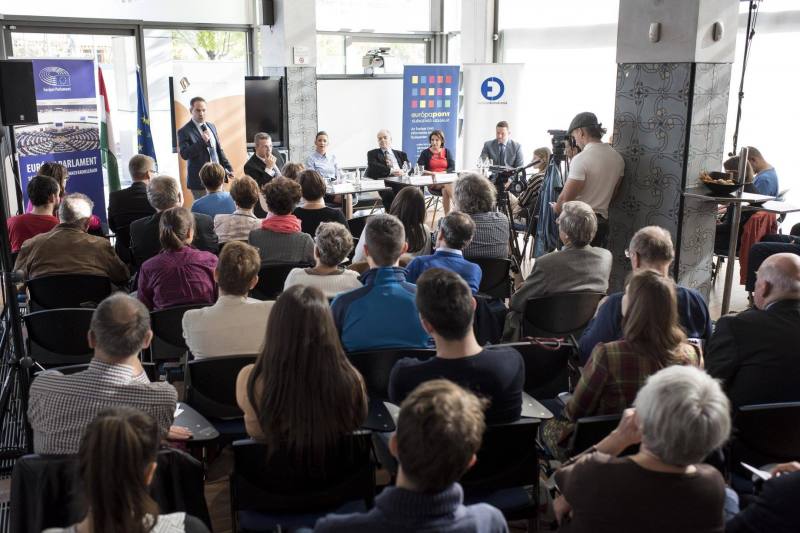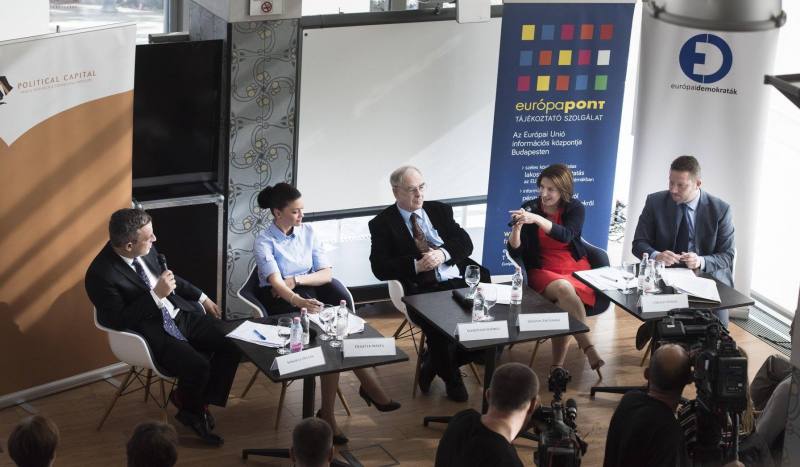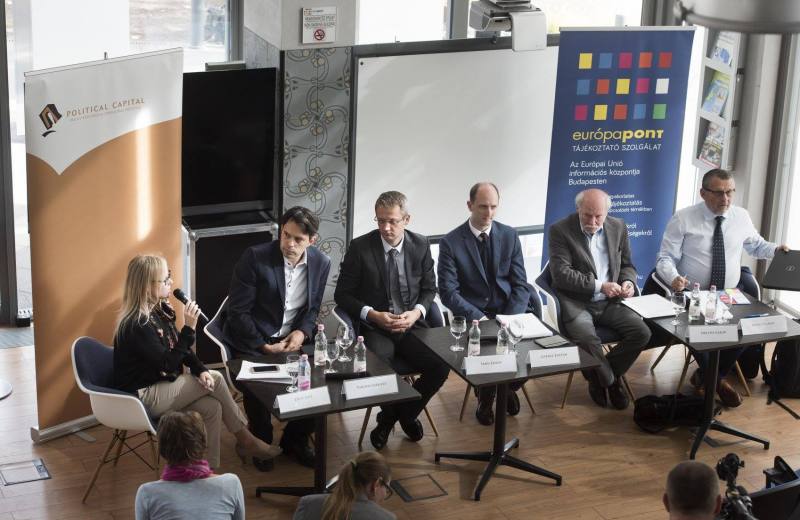Do we need the Euro? Should we belong to the core of Europe? – Conference
What is the role of Hungary in the changing European Union? Do we want the Euro in Hungary? These questions were discussed first by politicians and then by economic experts on a conference organised by Political Capital.
The participants of the first panel were Márta Demeter (MP, LMP), György Schöpflin (MEP, European People’s Party, Fidesz-KDNP), Zsuzsanna Szelényi (MP, independent) and István Ujhelyi (MEP, Progressive Alliance of Socialists and Democrats, MSZP).
Hungary has a historical opportunity to join the Eurozone, according to Istvan Ujhelyi. He emphasized that he was an ardent supporter of adopting the Euro in Hungary because it would lead to Hungary’s deeper integration within the European Union. Zsuzsanna Szelényi also supports the introduction of the Euro. The Euro should have already been introduced in Hungary earlier, but it has always been against the interests of the corrupt elite in the past 20 years – she stated. Márta Demeter’s argument was more balanced: she did not clearly take a side. She emphasized that Hungary needed the Euro only if Hungarians profit from it. György Schöplin did not supporting the (early) adoption of the Euro. He mentioned the example of Sweden: the Euro has not been introduced there but the Swedish economy performs well regardless.
In the second panel the participants were Gergely Tardos (research director of OTP), János Samu (head of analytical business, Concorde Értékpapír Zrt.), Zoltán Gyenes (economic analyst, Hungarian representation of the European Commission), Gábor Oblath (economist, senior research fellow of MTA KRTK KTI) and Kálmán Mizsei (economist, past leader of the Ukrainian civil mission to the EU).
In this section, experts discussed questions regarding the Euro in more detail. Only Kálmán Mizsei supported the early adoption of the Euro unequivocally. According to him, Hungary should join the ERM II to prepare for this. Gergely Tardos highlighted that there was no chance for following an independent monetary policy in the Eurozone, and the outcome of economic policy does not depend on the Euro. Gábor Oblath illustrated the different potential consequences of introducing the Euro with the example of two countries: Slovakia and Slovenia, positive and the negative examples, respectively. Some experts argued if these two countries were good examples, but there was they agreed that the level of economic development in a given state needs not to be almost equal to the EU average to adopt the Euro.
To sum up, the two discussions were similar in one way: participants agreed that Hungary would need the Euro at some point, but there were different opinions on what is the appropriate time for its adoption.
This summary was written by Ajna Koreny, an intern at Political Capital.




